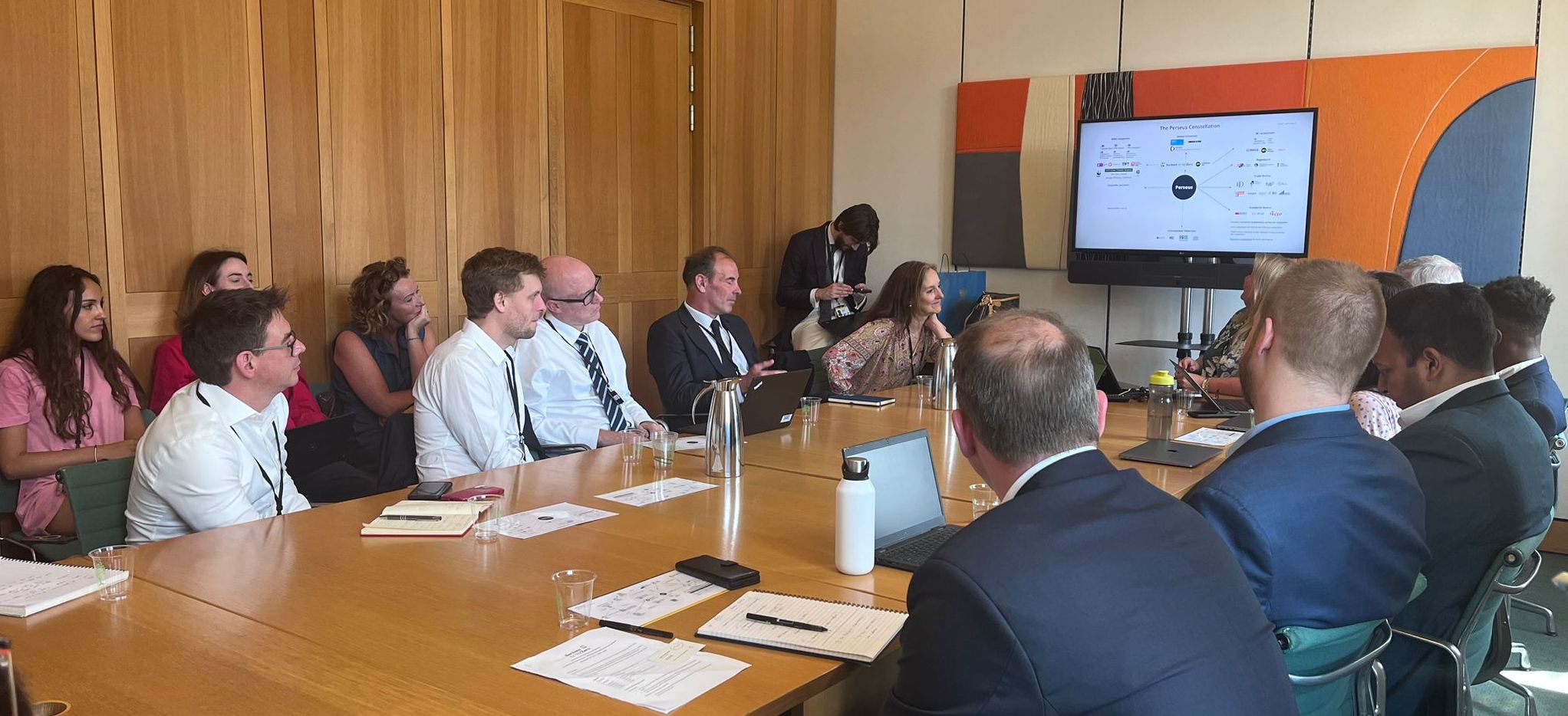Hosted by Minister for Energy Efficiency and Green Finance, Lord Callanan, and convened by the UK Government and Bankers for Net Zero, a group of industry leaders including representatives from banks, carbon accounting firms, auditors, SMEs and startups came together to discuss the strategy for Perseus.

The aim is to create a demonstrator that automates carbon footprinting using electricity data in an assurable way. This will reduce the risk for lending book, increase green lending, and unlock access to capital for SMEs on the race to zero.
The initiative has gained both commercial buy-in and government support through the Net Zero Council chaired by Minister for Energy Security and Net Zero, Graham Stuart MP. The coalition hopes this level of support will encourage others in different parts of the ecosystem to join.
The group discussed:
- that data quality is key and highlighted the potential benefits that accurate information can bring SMEs
- that carbon accounting today mostly relies on ineffective spend-based estimates, so it’s necessary to access primary data, at high-resolution, which is actionable and assurable. This will help small businesses win more customers by verifying their sustainability efforts and gaining trust from customers.
- that banks plan to support green loans but need data demonstrating its impact, making it important that SMEs engage with this issue through automation while also being educated about what’s happening in the background uniformly agreed upon by the government.
- the importance of supporting and harmonising the usage of existing standards for carbon reporting
- the need to focus on energy efficiency in commercial buildings.
- the challenges of measuring emissions across different sectors, such as agriculture, and stressed the importance of collaborating with international organizations to ensure interoperability.
- the goal is to create a blueprint for scaling this initiative internationally while avoiding the proliferation of other methodologies or standards.
- that government may need to intervene and establish one set of rails for everyone to minimize effort and confusion.
- the engagement process with SMEs regarding carbon accounting and data sharing. The government is working to provide trusted sources of advice and guidance, while also incentivizing participation in the program. There is a focus on building trust through consent-based data sharing between energy data providers, accounting platforms, banks, and regulators. However, there are concerns about anti-competitive practices in the market and this initiative needs to be framed as a tool for competitiveness rather than just fulfilling regulatory requirements.
- the need for clear communication to bridge the understanding gap among businesses and consumers alike.
- the importance of large enterprises and mid-market companies caring about their SMEs in a different way for sustainability. The need to understand what SMEs need, such as clear and accurate data, was emphasized. Smart meters were discussed, and there is a call for clarity on how to handle energy data appropriately. The group discussed creating a narrative around competitiveness and market opportunity for SMEs with respect to climate change. There is an ask for more clarity on the use case for financial institutions, including delivering universal data.
- overall, the focus is on making sure all stakeholders are engaged in this project and working together cohesively towards achieving net zero emissions goals.
Next steps
- Create demonstrator
- Address reporting standards for small businesses
- Create a concise statement or page explaining what’s happening with the project and why SMEs don’t have to do anything
- Joint presentation at COP involving stakeholders from bankers, energy sector, and targeted SME sector showcasing success of project
To get involved, please contact perseus@ib1.org
